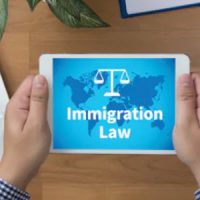How Does A U.S. Consular Officer Determine One’s Ties To Their Home Country?

When you apply for a non-immigrant visa to enter the United States, you are likely going to feel confused and upset if you get a refusal. There could be several reasons why this happens. One reason could be that you lacked sufficient documentation. Another reason is that you were unable to show that you had strong ties to your home country.
But what are ties, and how are they determined? Being approved for a non-immigrant visa means that you have satisfied the paperwork and documentation required for your visa and that you also demonstrate sufficient ties to your home country.
The experienced Atlanta non-immigrant visa attorneys at Shirazi Immigration Law, Inc. will discuss more about what ties are and some of the things that a consular officer will be looking at when determining if adequate ties exist in a prospective applicant.
Establishing Strong Ties to Have Your Non-Immigrant Visa Approved in the United States
When a consular officer reviews your information, they will want to feel assured that you have enough of a connection to your home country that when your visa expires, you will voluntarily exit the United States and return home. Some strong ties that will be evaluated will include an applicant’s economic situation in their home country, their social status, family members residing in the home country, and more.
A consular officer may consider the following when establishing the strength of one’s ties:
- Has the applicant stayed for a long time in the U.S. during a previous trip?
- If the applicant stayed in the U.S. for an extended time, did they do so lawfully by obtaining approval from U.S. Citizenship and Immigration Services (USCIS)?
- After a previous stay in the U.S., how long was the applicant in their home country before reapplying to come back to the U.S.?
- Does the applicant have a steady job in their home country with sufficient pay?
- Do family members in the U.S. make trips back to an applicant’s home country to visit?
- What family members live and are staying in the applicant’s home country?
It is essential to show compelling evidence that there is a link to one’s home country that would not allow an applicant to overstay their visa unlawfully and would motivate them to follow the laws and go back home when it is time.
Every applicant’s case varies, and no one is exactly alike. The consular officer reviewing your application will consider your personal and unique circumstances when deciding if your ties are strong enough to approve your visa or if they seem lacking.
Speak to an Atlanta Immigration Attorney Today
If your U.S. non-immigrant visa application was refused because you could not establish verifiable and irrefutable evidence of ties, you might be wondering what you can do next. For help with a non-immigrant visa, please call the Georgia immigration attorneys at Shirazi Immigration Law, Inc. at 404-523-3611.
